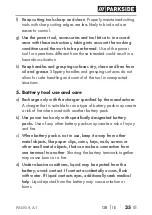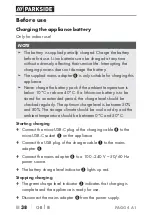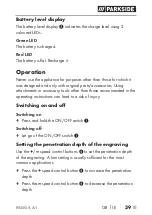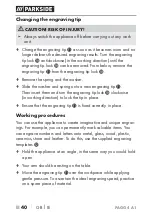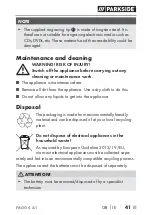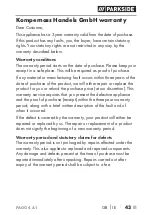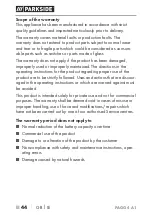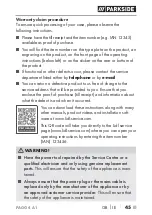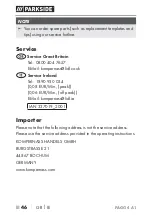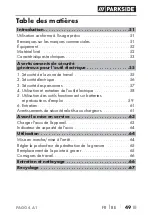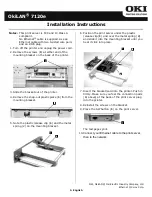
PAGG 4 A1
■
34
│
GB
│
IE
f)
Dress properly. Do not wear loose clothing or jewellery. Keep
your hair and clothing away from moving parts.
Loose clothes,
jewellery or long hair can be caught in moving parts.
g)
If devices are provided for the connection of dust extraction
and collection facilities, ensure these are connected and prop-
erly used.
Use of dust collection can reduce dust-related hazards.
h)
Do not let familiarity gained from frequent use of tools allow
you to become complacent and ignore tool safety principles.
A careless action can cause severe injury within a fraction of a
second.
4. Power tool use and care
a)
Do not force the power tool. Use the correct power tool for
your application.
The correct power tool will do the job better
and safer at the rate for which it was designed.
b)
Do not use the power tool if the switch does not turn it on and
off.
Any power tool that cannot be controlled with the switch is
dangerous and must be repaired.
c)
Disconnect the plug from the power source and/or remove the
battery pack, if detachable, from the power tool before
making any adjustments, changing accessories, or storing
power tools.
Such preventive safety measures reduce the risk of
starting the power tool accidentally.
d)
Store idle power tools out of the reach of children and do not
allow persons unfamiliar with the power tool or these instruc-
tions to operate the power tool.
Power tools are dangerous in
the hands of untrained users.
e)
Maintain power tools and accessories. Check for misalignment
or binding of moving parts, breakage of parts and any other
condition that may affect the power tool’s operation. If
damaged, have the power tool repaired before use.
Many
accidents are caused by poorly maintained power tools.
















